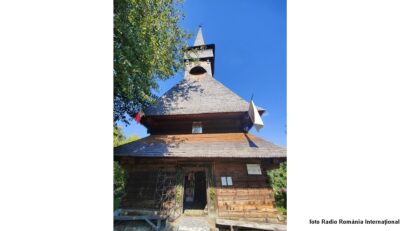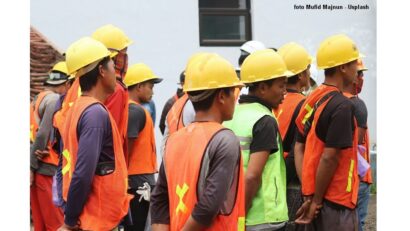Mobility and Change in Roma Communities
The 2011 census places the size of the self-declared Roma community in Romania at 621,200 , but the real figure is much higher.

Christine Leșcu, 16.12.2015, 12:33
The 2011 census places the size of the self-declared Roma community
in Romania at 621,200, but in reality it is much more numerous, and has not
been studied seriously by sociologists. This is the conclusion of the study
entitled ‘Positive Aspects of Migration. Roma Women as Agents of Change’. This
research, performed by the Eurocentrica foundation with funding from EEA
Grants, wanted to identify the effects of seasonal migration abroad on Roma
women and on their status in their communities. At the same time, the study
wanted to reveal some of the social relations within this little known
minority, which results in it being afflicted by stereotypes, as Gabriela
Dragan, head of the European Institute of Romania, pointed out.
Gabriela Dragan: This is a group that feels discriminated against, and it
is not just a perception. I looked at the Eurobarometer from June 2015, using a
sample of 28,000 European citizens. One of the questions was: ‘Do you believe
that ethnic discrimination is widespread?’ 64% of the respondents said they
thought it was extremely widespread. The ethnic discrimination question
referred to the Roma population, as well as to other ethnicities. Another
question, however, seemed to me even more interesting: how many of them would
feel uncomfortable if their children had a relationship with a person of
another ethnicity? 34% of them said they would feel extremely uncomfortable if
their children had a relationship with a Roma person. This is the highest
percentage of European citizens who said that. The exception is reservations
towards transsexuals. The reality is that there is such a perception towards
this group, and definitely the perception is motivated by certain real
elements.
Seeking to escape discrimination, but also an economic
situation that is more than precarious, a lot of Roma move to Europe, seeking
better living conditions. Some of them go to Norway, where people from the Eurocentrica
foundation followed them. Their study focused on Roma women from three specific
communities in Gorj County, in Romania. They spoke to the women both at home
and in Norway, which they reached after wandering across Europe, as one of the
authors of the study, Liviu Iancu, told us.
Liviu Iancu: This research revealed some very interesting aspects on
the way in which the migration destinations for the Roma change from south to
north, depending on Europe’s socio-economic evolution. If around the year 2000,
for instance, they went to do farm work in Portugal, after the crisis broke out
they changed destinations and started going to Scandinavian countries. Here,
labor regulations exclude them from the labor market, so many of them are
relegated to begging. There are exceptions, and many of them want to work, but
the legal barriers, the language barriers, and other obstacles of this type do
not encourage them to this end.
In addition to discrimination, poverty and lack of
education, Roma women are faced with a number of problems specific to them, as
we were told by Cristina Tanase, program manager with the Save the Children
Foundation, who is herself Roma.
Cristina Tanase: It is true that women are not equal to men, but depending
on the Roma ethnic group that they belong to, inequality is more or less accentuated.
For instance, at meals they are not allowed to sit at the same table as the
husband, and she has to walk behind the husband.
Migration seems to do little to improve the status of
women, but rather to place a further burden on them. Here is Liviu Iancu:
As far as women are concerned, as the target of this
study, we saw that migration changes their status. Family atmosphere is better,
considering that resources obtained as a result of migration are better. Also,
migration is risky, so they take part in family decisions more often than
before. When men are no longer able to fulfill their traditional role of
providing for the family -they are ill or are not at home for whatever reason -
women have to give up the social restrictions specific to their community and
take their fate in their own hands: bring in income, care for sick relatives,
and get involved in the process of migration.
The results of the study, however, can also be
interpreted in another way, as pointed out by Gabriela Dragan:
We had 26 questions, many related to their status, such
as what they were doing in Norway or how they earned their money. The questions
that could reveal changes in the status of women were the following: ‘Has
anything changed in your family since you arrived in Norway?’, ‘What has
changed?’. We got over 50% ‘yes’ answers to the first question. In this case,
we had to see what had changed. Incomes were somewhat higher. That led to a
change in family atmosphere. Asked if anything had changed in the decision
making process, 70% of respondents answered ‘no’. Things are slow to change.
Cultural patterns don’t change in a short time, they take a long time or don’t
occur at all. Cultural patterns don’t change easily, they are extremely hard to
change. The hypothesis of the study was interesting, but as far as I’m
concerned, changes are not visible.
For mentalities to change, Cristina Tanase believes, the
experience of migration has to be completed by education:
Education shows results. If in other countries the Roma
have contact with the majority population there, there is a possibility for
them to self-educate depending on the culture they integrate in. For instance,
I got a lot from the majority population. Which is why the ‘Save the Children’
association emphasizes education and we develop training projects for Roma and
non-Roma teachers, so that Roma culture and tradition are known, but also for
parents to participate in the children’s activities, to learn from each other.
In addition to sociology research, the project ‘Positive
Aspects of Migration’ included organizing two festivals with Roma craftsmen.






























